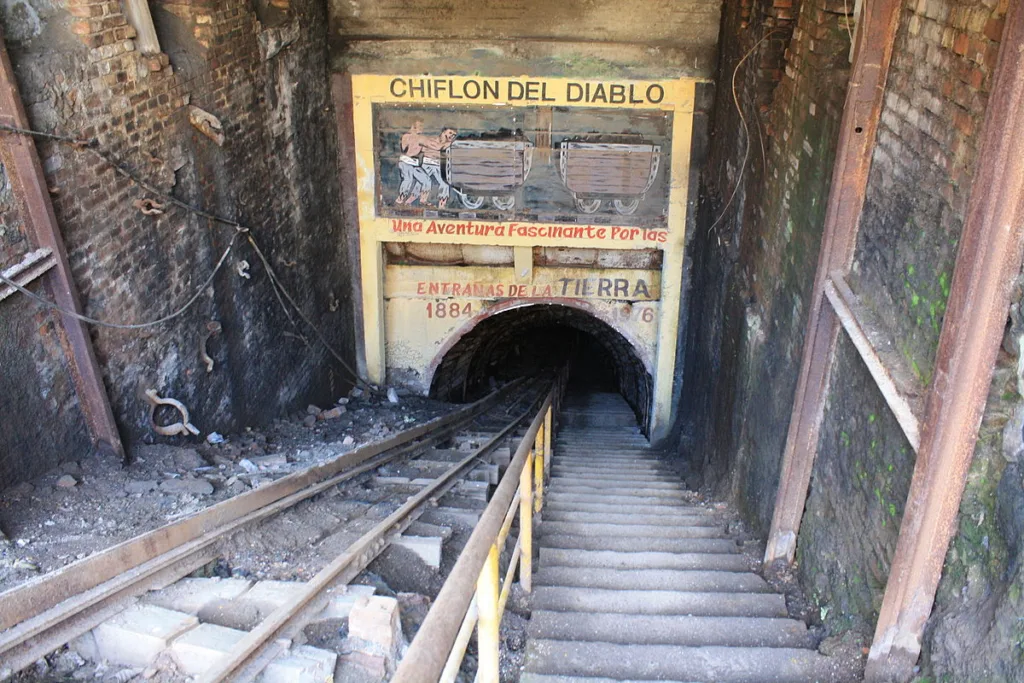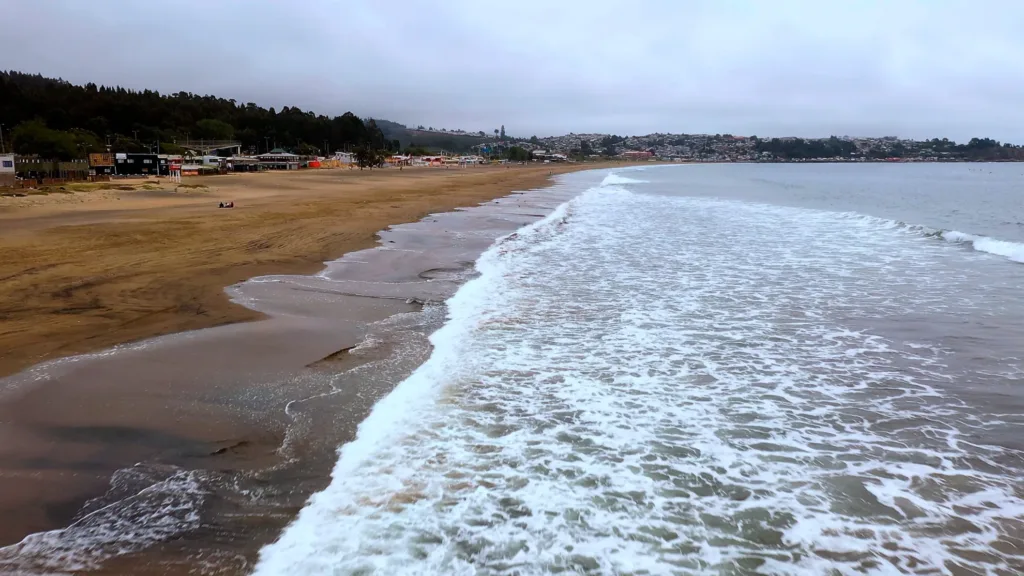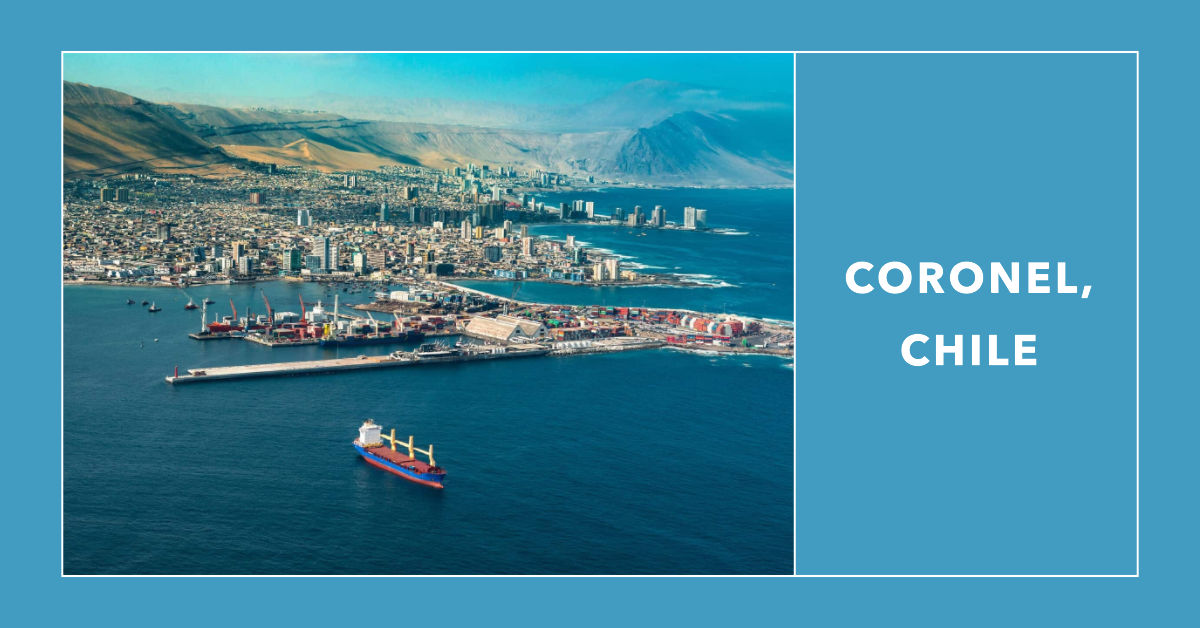Coronel
Coronel, situated in the Concepción Province of the Biobío region in Chile, is a city and commune that presents a captivating fusion of natural beauty, a rich past, and a vibrant cultural scene.
The town was formally established on July 4, 1851, Coronel emerged during a time of remarkable economic and industrial growth in the area. Its foundation was intricately linked to the flourishing coal and timber industries, which played a pivotal role in Chile’s overall progress.
The name “Coronel” itself has historical significance. It is believed to be a tribute to Francisco de Coronel, a Spanish captain who explored the region in the 16th century. This reference to exploration and maritime history mirrors the town’s early association with the sea and its function as a port.

History of Coronel
In 1545, Pedro de Valdivia founded the city of La Serena, which is located about 100 kilometres north of Coronel. La Serena quickly became an important commercial and administrative centre for the Spanish colonial empire.
In the 17th century, Coronel was founded as a port city to serve the growing mining industry in the region. The city’s name is derived from the Spanish word for “colonel”, in honour of the Spanish military officers who were responsible for the city’s development.
The late 19th and early 20th centuries marked a period of rapid growth for Coronel as it evolved into a bustling industrial town. The Santa Maria coal mine, established in 1880, played a crucial role in Coronel’s development, attracting both national and international attention. The town’s expansion was further fueled by the construction of a railway connecting Coronel to Concepción, facilitating the transportation of goods and people.
However, Coronel’s history is not without challenges. The town faced significant social and labour issues during the early 20th century, culminating in events like the Coronel Massacre of 1920, where striking coal miners were met with violence. These events shaped the town’s social and political landscape, leaving a lasting impact on its historical narrative.
Today, Coronel stands as a testament to its industrial heritage, with remnants of old mines and historical landmarks offering a glimpse into its founding era. As visitors explore the town, they can appreciate the resilience and evolution of Coronel from its early days as an industrial powerhouse to the vibrant and diverse community it is today.
One of the highlights of Coronel is its stunning coastline. Playa Blanca, a popular beach in the area, boasts golden sands and crystal-clear waters, making it the perfect spot for sunbathing, swimming, and water sports. The beach is also known for its picturesque sunsets, offering visitors a truly magical experience.

Demographics
Coronel’s population reflects a harmonious blend of cultures and backgrounds, shaped by its industrial history. The town is home to a mix of residents, including descendants of early European settlers, indigenous Mapuche communities, and those who have migrated to Coronel for its economic opportunities. The cultural diversity is evident in the local cuisine, traditions, and festivals celebrated throughout the year. Visitors can immerse themselves in the vibrant local community, gaining a deeper understanding of the town’s cultural fabric.
Explore Coronel
For those looking to explore Coronel’s historical and cultural side, the city offers a variety of outdoor activities. The coast is home to pristine beaches such as Playa Blanca, providing the perfect setting for relaxation and water activities. Nature lovers will love visiting the nearby Federico Alberto National Reserve. The reserve showcases the area’s biodiversity through hiking trails and birdwatching.
Coronel’s charm extends to its local markets, where visitors can sample fresh seafood and regional specialities. The town’s central square, surrounded by charming architecture, is a perfect starting point for a stroll, offering glimpses into everyday life in Coronel.
Lota is indeed known for its historical coal mining industry, and the Lota Coal Mine Museum (Museo Mina Chiflón del Diablo) is a notable attraction for those interested in the region’s industrial history. The museum features exhibits that showcase the history of coal mining in Lota, including the tools, machinery, and equipment used by miners in the past.
Playa Blanca is known for its scenic beauty, featuring white sandy shores and the blue waters of the Pacific Ocean. The beach is a picturesque setting, providing a tranquil escape and opportunities for enjoying the natural surroundings.


